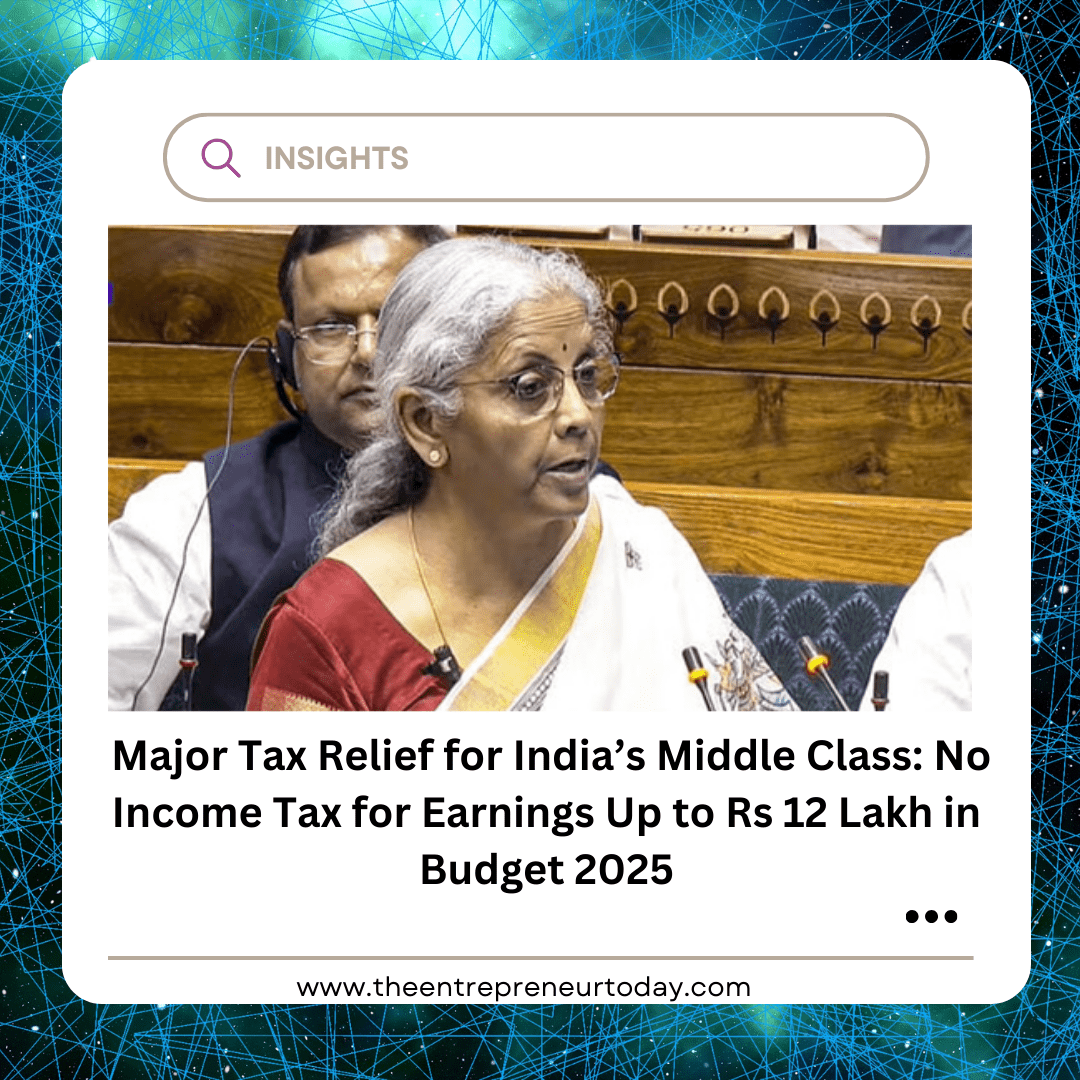Summary: In Budget 2025, Finance Minister Nirmala Sitharaman announced that individuals earning up to Rs 12 lakh annually will no longer have to pay income tax under the new tax regime. This move provides significant relief to India’s middle class, increasing their disposable income and boosting economic growth. The exemption is expected to stimulate consumer spending and investment, benefiting various sectors. The government aims to simplify the tax structure while ensuring financial stability for taxpayers. This reform is a major step toward easing the financial burden on the salaried class and fostering economic activity.
In a significant move aimed at providing relief to the middle class, Finance Minister Nirmala Sitharaman announced in the Budget 2025 that individuals earning up to Rs 12 lakh annually will no longer have to pay income tax under the new tax regime. This announcement is seen as a major step to ease the financial burden on the salaried class, which forms a crucial segment of India’s workforce.
The New Tax Regime: A Boon for Taxpayers
As part of the government’s ongoing reforms to streamline and simplify the tax structure, the new tax regime will benefit millions of middle-income earners across the country. Currently, under the old tax regime, taxpayers with annual earnings above Rs 2.5 lakh are required to pay income tax, with varying tax slabs based on the income. However, with the introduction of this new tax regime, individuals earning up to Rs 12 lakh will be exempt from paying income tax entirely.
This is an especially welcome development in the post-pandemic era, when the cost of living has been steadily increasing, and many have struggled with economic instability. By removing the tax burden for individuals in the Rs 2.5 lakh to Rs 12 lakh income bracket, the government is directly benefiting the middle class, which forms the backbone of India’s economy.
Who Benefits from the Tax Exemption?
Under the new regime, individuals in the following income categories will no longer be required to pay income tax:
- Annual Income up to Rs 12 Lakh: Any taxpayer earning a salary, wages, or business income up to Rs 12 lakh annually will be exempt from paying income tax. This exemption ensures that millions of middle-class workers will be able to retain a larger portion of their earnings.
- Existing Tax Slabs Reduced: For those earning above Rs 12 lakh, the government has further simplified tax slabs, leading to a reduction in the overall tax liability for higher-income groups as well.
This change is expected to have a direct impact on the disposable income of middle-class families, giving them more financial freedom to invest, save, or spend as per their requirements.
A Step Towards Economic Growth and Consumption
The decision comes at a time when India is navigating through an uncertain global economy. The government’s decision to increase disposable income for a large portion of the population is likely to stimulate domestic consumption and help fuel economic growth. With more money in hand, the middle class is expected to contribute more significantly to sectors like retail, housing, and consumer goods, thus benefiting the overall economy.
The move also aligns with the government’s broader economic objectives of reducing the tax burden on individuals and promoting greater economic activity within the country. By offering relief to a key demographic, the Finance Ministry is hoping to stimulate both consumer spending and investment.
What’s Next?
While the exemption for middle-income earners is certainly a step in the right direction, the government has emphasized that it will continue to refine its tax policies. Discussions on the sustainability of the tax exemptions and the broader implications for government revenue will likely follow in the coming months. However, the Budget 2025 reforms have undoubtedly made a significant impact on the financial landscape, offering a much-needed lifeline to India’s middle class.
The Budget 2025 announcement that individuals earning up to Rs 12 lakh annually will no longer have to pay income tax is a welcome relief for millions of middle-class taxpayers across India. By removing the tax burden, the government has taken a major step in fostering economic growth, encouraging consumption, and supporting the financial wellbeing of its citizens. As India moves forward, the hope is that these changes will empower the middle class to contribute even more to the country’s dynamic economy.
Check out more on Startup News and Startup Funding News. Stay connected with us across all our social media platforms: Facebook, Instagram, LinkedIn, X (formerly Twitter), and Join Our Community.
Last Updated on Saturday, February 1, 2025 8:26 pm by The Entrepreneur Today Desk
